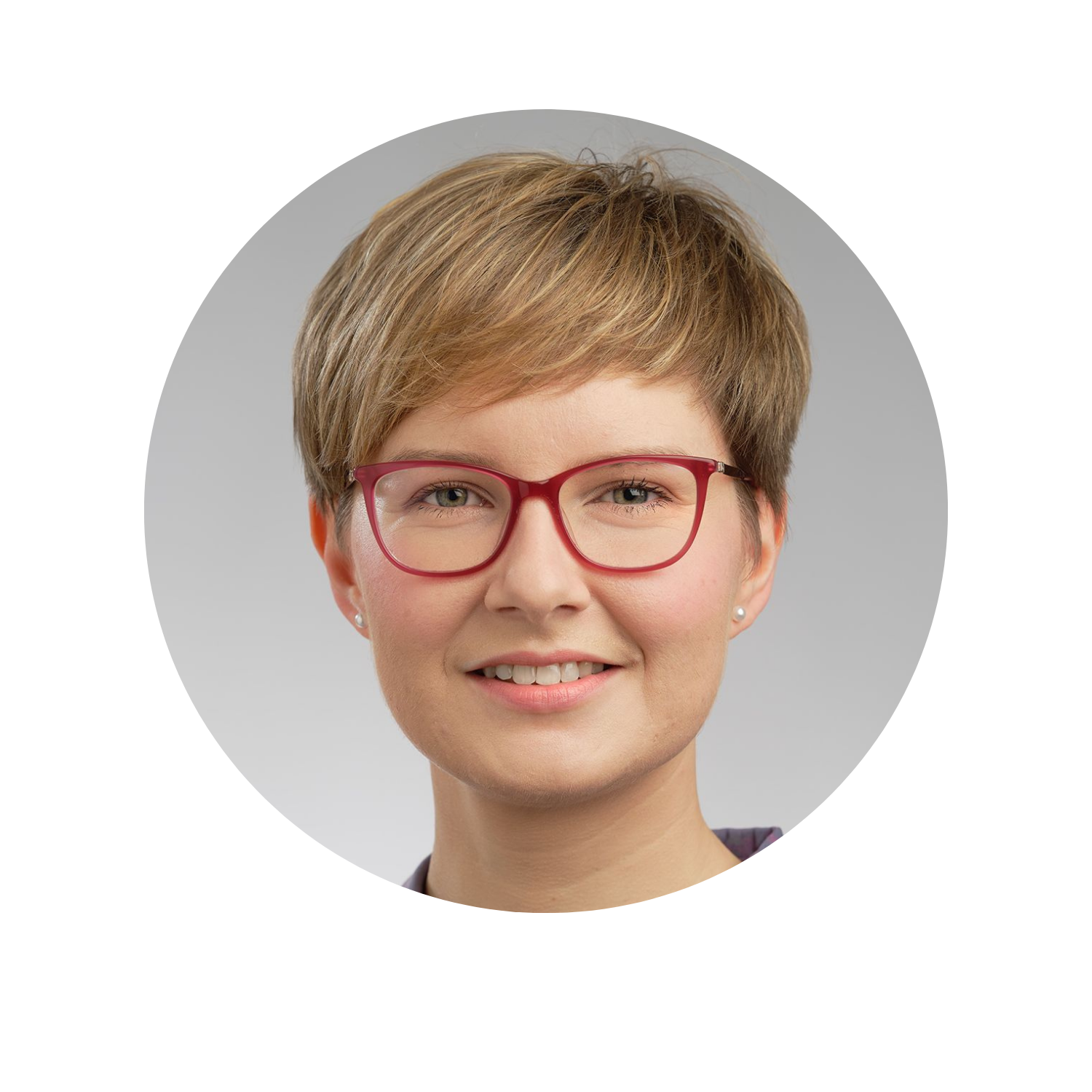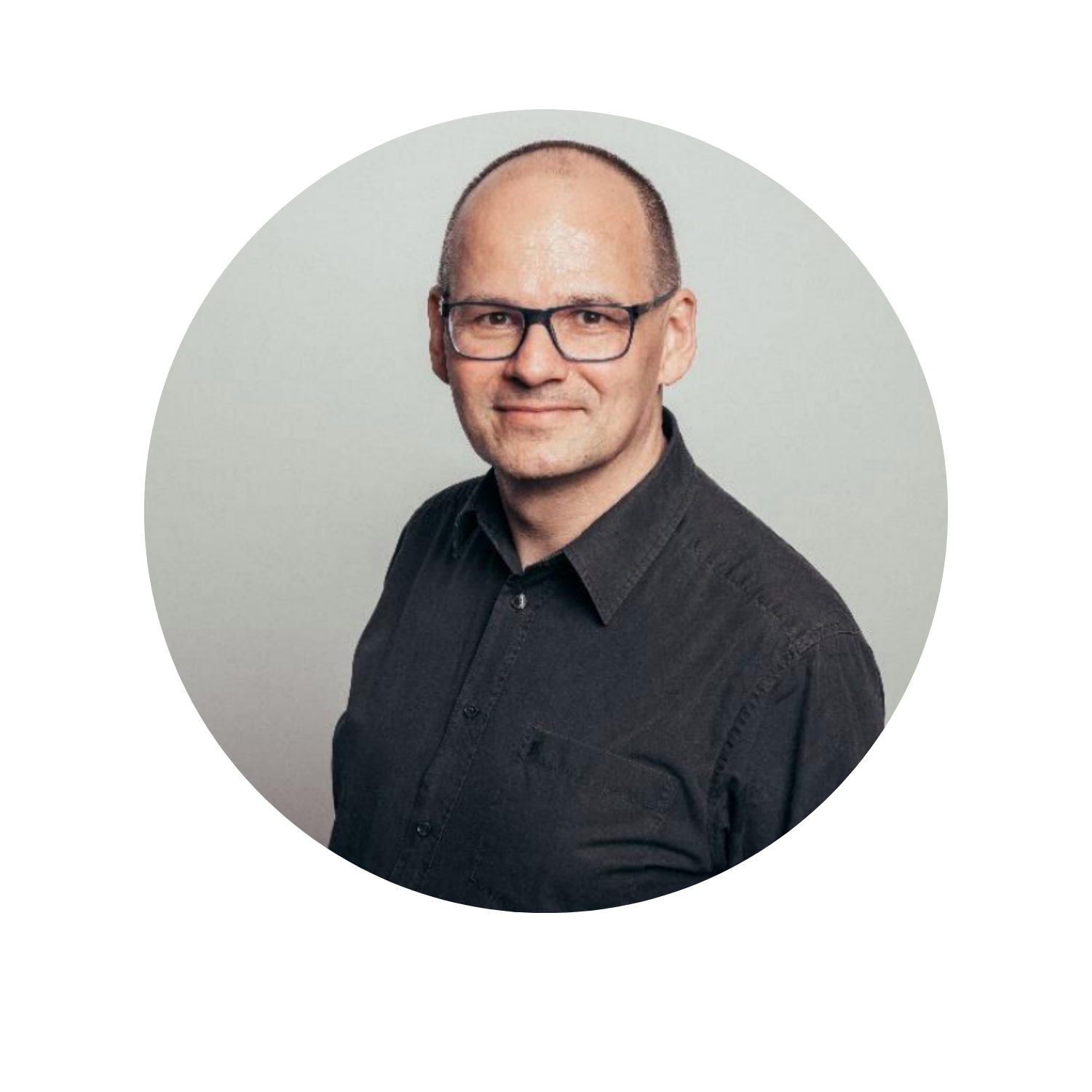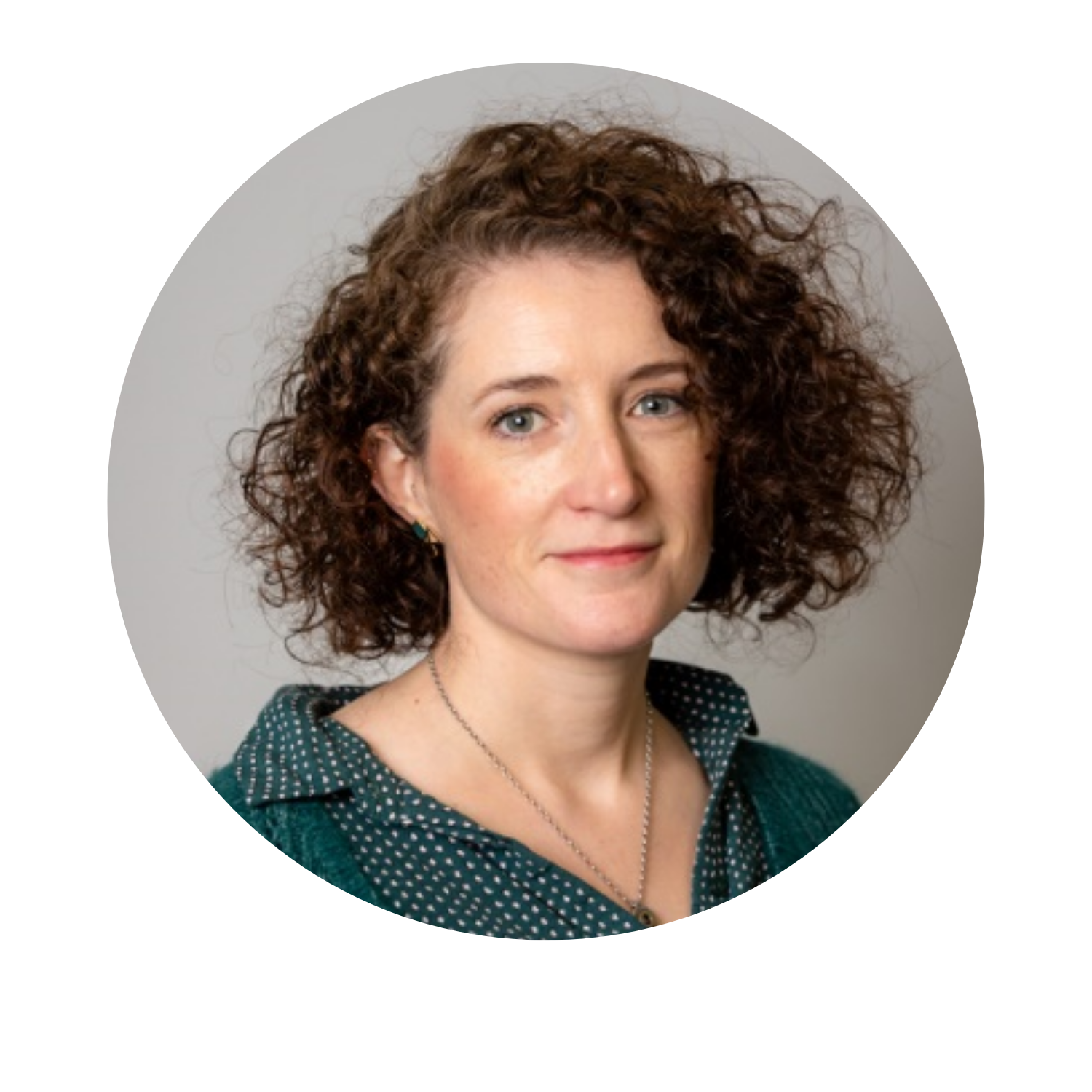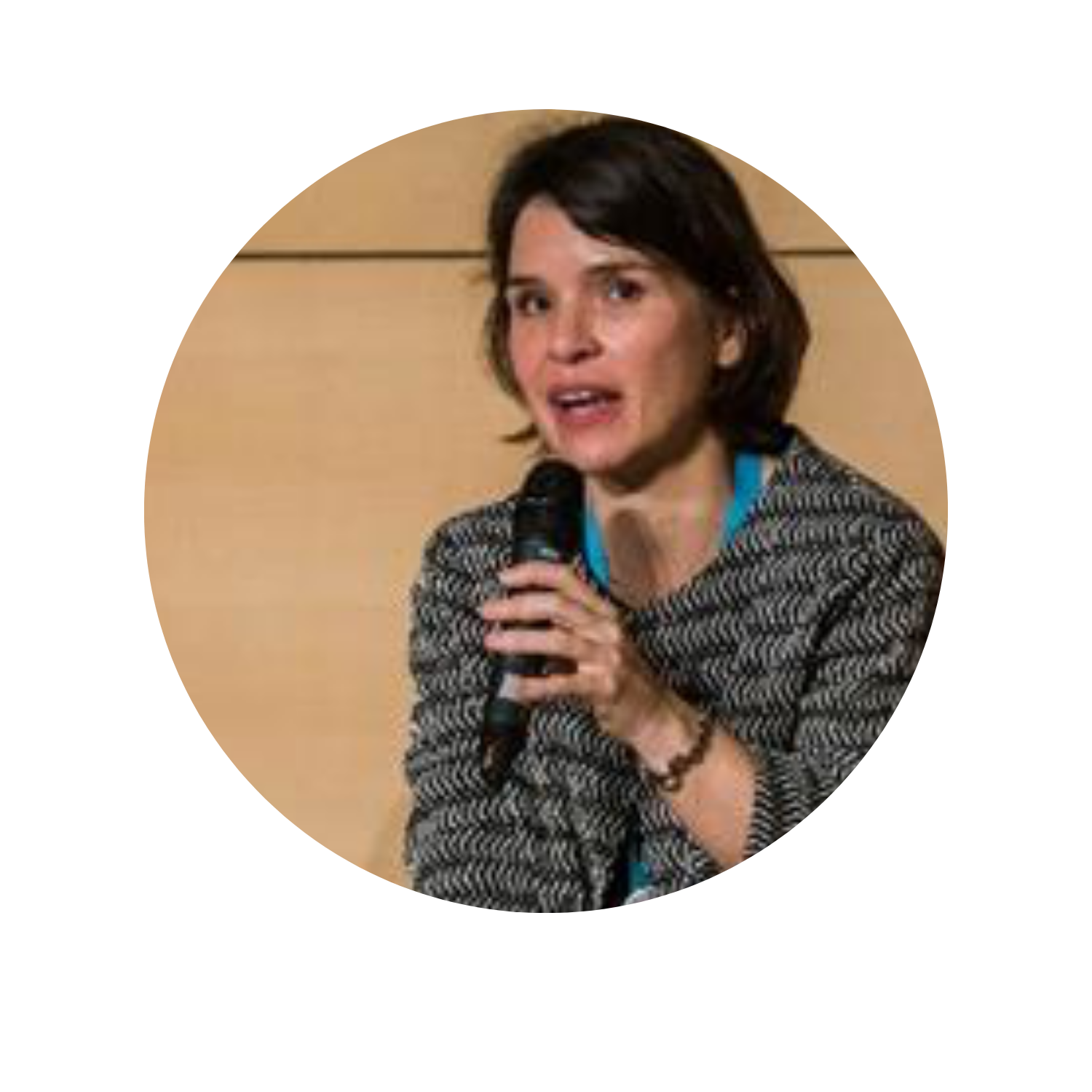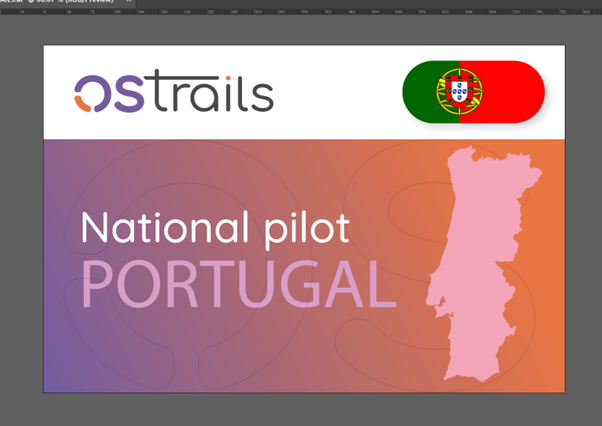Is the Future… Now?! Reflections from our SURF Research Day 2025 workshop on machine actionable DMPs.
On May 20th, OSTrails partners took part in SURF Research Day 2025 with a session titled “Is the future… now?! Exploring machine actionable DMPs with OSTrails-NL & ARGOS.” Jointly organised and delivered by Dutch Pilot partners Eileen Waegemaekers (SURF) and Andrew S. Hoffman (CWTS), together with Leiden University colleague Céline Richard, and Elli Papadopoulou (Athena RC / OpenAIRE), the workshop brought together more than 30 Dutch research data professionals. The session explored how machine actionable Data Management Plans (maDMPs) can support integrated, FAIR-aligned workflows across their organisations.
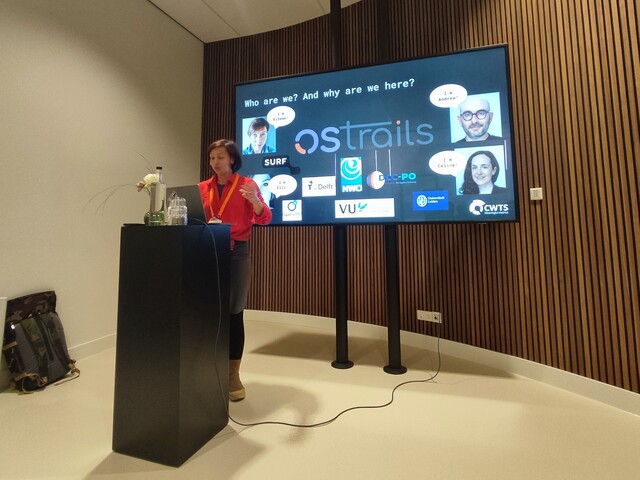 Eileen Waegemaekers (SURF) introducing the workshop.
Eileen Waegemaekers (SURF) introducing the workshop.
The session took stock of last year’s discussion“What’s behind the Data Management Plan of the future?” which raised thoughtful questions about the administrative burden of DMPs, their usefulness to different stakeholders, and the potential role of automation. Building on those conversations, this year Dutch pilot movedfrom vision to implementation.
Exploring the Dutch landscape of DMP workflows
The session followed a hybrid format combining short presentations with interactive activities to further engage with participants and a tool demonstration. It provided an opportunity to connect broader goals around interoperability and FAIRness with the practical realities of managing data-related workflows in Dutch institutions. In doing so, it highlighted how OSTrails is working to:
- Support interoperability through alignment with theDMP Common Standard.
- EnableFAIR assessment of plans and associated research outputs.
- Offera framework for institutions to connect planning with execution and reporting.
As part of the Dutch pilot, we showcased ARGOS DMP platform and the Leiden University blueprint to demonstrate how data management planning can become a practical, integrated part of research workflows, rather than a disconnected administrative task.
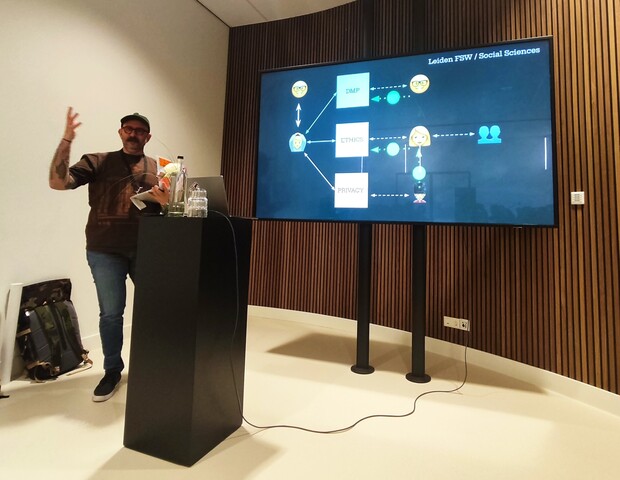 Andrew S. Hoffman (CWTS) presenting Leiden Social Sciences example.
Andrew S. Hoffman (CWTS) presenting Leiden Social Sciences example.
Following theLeiden Social Sciences example,participants were invited to sketch out how data management, ethics, and privacy processes are currently handled in theiraffiliatedinstitutions. These hand-drawn workflow diagrams sparked conversation about fragmentation, duplicated efforts, and where bottlenecks tend to appear.
Digging the surface
As we moved into the discussion, it became clear that many institutions are still figuring out how to bring different processes together. People shared that data management, ethics, and privacy are often handled separately, by different teams, in different systems, with little coordination. That fragmentation creates extra work, confusion, and often leaves researchers without a clear path.
There was a real interest in how maDMP tools might help address this, but also some hesitation. The idea of automating parts of planning is appealing, especially for reducing administrative burden, but it also raised questions. How do you build something structured without making it rigid? Can a plan be both machine-actionable and flexible enough to work across disciplines and contexts?

The discussions also revolved around the use of DMP Common Standard, which many recognised as valuable, though not a current priority. Currently, institutions tend to focus on tailoring internal tools to meet immediate needs, often placing machine actionability and interoperability in the background. This highlights clear opportunities for “under-the-hood” interoperability that can enable both researcher workflows on the one hand, and open science workflows on the other.
Looking ahead
This dialogue doesn’t end here. TheDutch pilot within the OSTrails project is ongoing, and we are looking forward to working more closely with institutions that want to explore how tools like ARGOS can support coordination across data management, privacy, and ethics. Future activities will include more testing, follow-up sessions, and opportunities to feed back into the development of templates and workflows that reflect local needs.
We are also continuing these exchanges through theOSTrails mentorshipprogramme , where institutions can learn from one another and experiment with shared tools and frameworks in a more supported setting.
A big thanks to everyone who joined us!


